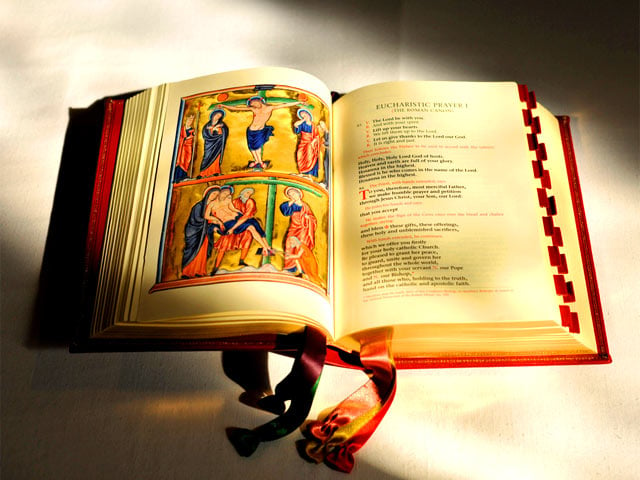- Home
- 우리들의 공동체
- 우리들의 신앙
- 성무 활동
-
본당 생활
- 행사일정
- St. Aidan's Video Links
- 본당 블로그
- 뉴스 기록 보관
- Mass Etiquette and Information
- Ad Orientem News and Facts
- Catholic Links
- Prayers and Announcements
- Luis Dizon Reflections - Archive
- 게시판
- 연락처
- Search

Vanity of Vanities (18th Sunday in Ordinary Time)
Click here for this Sunday’s Reading
Ecclesiastes can be an enigma to readers, because of its seemingly nihilistic attitude towards life. In this passage, we see that all of the things one might esteem as important –wisdom, knowledge, wealth–are regarded as vanity. In fact, it is more than just vanity. Ecclesiastes refers to the fact that one’s toil benefits another person who does not toil for it to be “a great evil.” Paradoxically, the reverse–a rich man keeping his own wealth to himself–is also considered a grievous evil (5:13-17). But why does Ecclesiastes present such a pessimistic outlook, and what how does one interpret this passage as a Christian?
The key to understanding Ecclesiastes is to read it in light of the rest of Scripture. In particular, one should read it alongside todays’ other scripture readings. In the Gospel, Jesus warns against the vanity of storing up treasures on earth rather than in heaven. In the epistle, St. Paul exhorts Christians to seek what is above, rather than what is on earth. These scriptures teach us that the value of all earthly goods and achievements are temporary, since they will pass away with the rest of the world. We should only value them insofar as they help to achieve heavenly goods. As Jesus said in Matthew 6:21: “For where your treasure is, there your heart will be also.”
Finally, going back to the book of Ecclesiastes, we can fully grasp the author’s intention only if we read all the way to the end of the book. The last two verses lay out the only way to live a life worth living, which is to live it in obedience to God’s commandments:
The end of the matter; all has been heard. Fear God and keep his commandments, for this is the whole duty of man. For God will bring every deed into judgment, with every secret thing, whether good or evil. (Ecclesiastes 12:13-14)
As we meditate on this Sunday’s Old Testament reading, let us pray that we may cultivate a healthy fear of God and obedience to His commandments.
J. Luis Dizon
